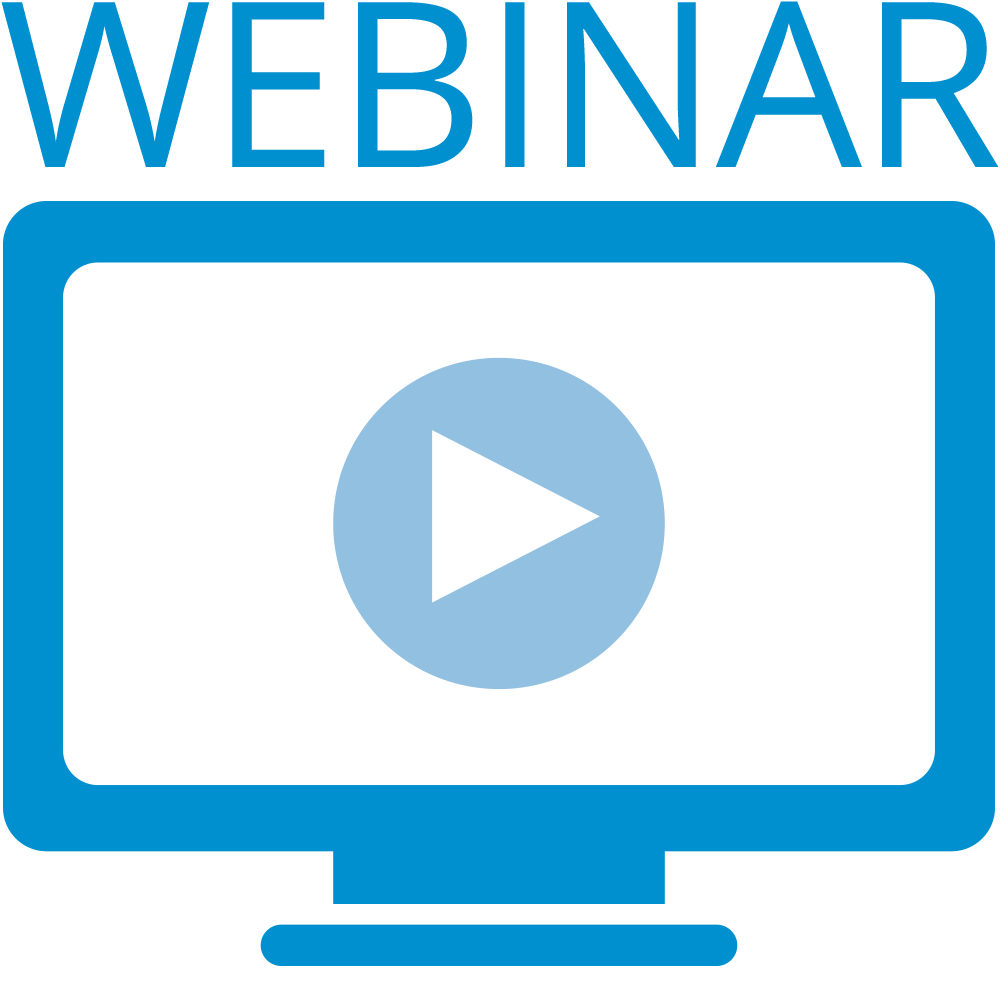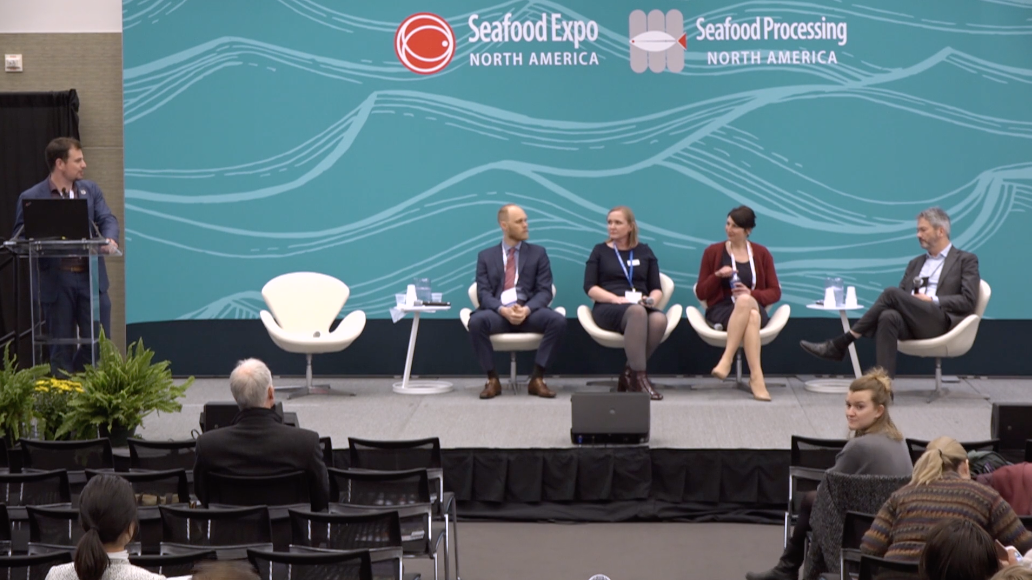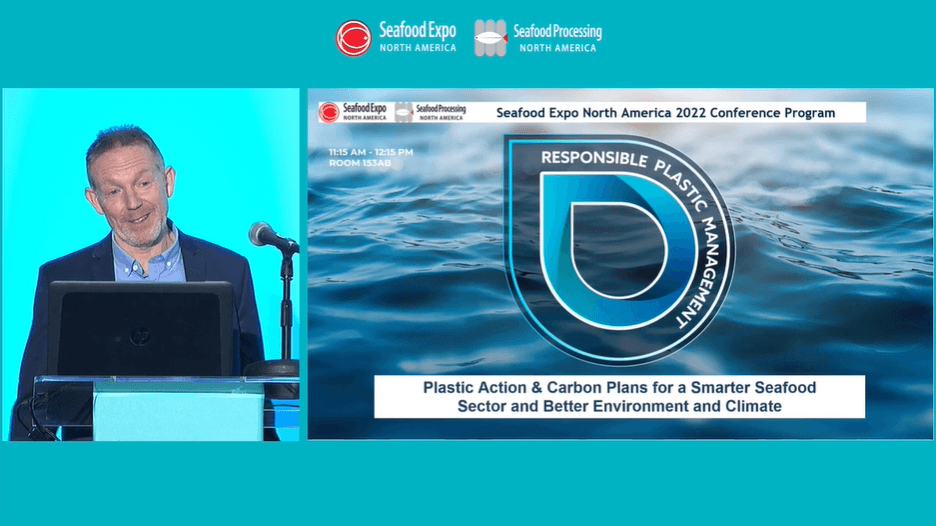Filters
Product Categories
Seafood good quality control best practices.
David Sefcik
Weights & Measures Division
National Institute of Standard & Technology (NIST)

The Business of Sustainable Seafood: Maximizing Industry’s Return on Investment


Speaker(s)/Moderator(s):
Ignacio Kleiman, CEO, Glacier Securities (a division of Islandsbanki), New York
Tim Antilla, Senior Vice President, Seafood and Maritime Industries, Wells Fargo Bank, Seattle
James Wright, Senior Editor, SeaFood Business magazine
Duration: 1 hour 21 minutes

Genetics and the Path Toward American Shrimp Dominance

A number of high-profile cases of mercury poisoning causing developmental disorders in the 1950s and 1960s dealt a body blow to the seafood industry, scaring parents into literally taking seafood out of the mouths of their children. The terror continues to this day, despite modern science showing the fears are unwarranted.
In this on-demand webinar, we'll hear the truth about how safe seafood is to eat, even for pregnant women and young children, and how you can get the message across to your customers.

BLOCKCHAIN IN THE SEAFOOD INDUSTRY: Increasing transparency and efficiency in supply chains

Speakers: Herman Wisse, The Global Sustainable Seafood Initiative (GSSI); Darian McBain, Thai Union; Hugo Byrnes, Ahold Delhaize; Sonja Schmid, The Consumer Goods Forum; Joe Zelasney, Food And Agriculture Organization
Globally, great efforts have been made to ensure seafood is produced and traded in an environmentally sustainable manner, while the promotion of social sustainability in seafood value chains has been much slower. The need to address critical social labor issues in the seafood industry is now globally understood and widely acknowledged. For this session, GSSI will be joined by the Consumer Goods Forum’s Sustainable Supply Chain Initiative (SSCI) to discuss the two organizations’ collaboration to develop a global benchmark for social compliance schemes in the seafood sector. By providing an open-source list of recognized schemes, the GSSI – SSCI benchmark tool will deliver clear guidance on which seafood schemes cover key social compliance criteria and apply robust verification practices. GSSI and SSCI will also be joined by industry experts from across the supply chain and international organizations to discuss the role of international instruments and the importance of multi-stakeholder collaboration in safeguarding human rights throughout seafood value chains.

Moderator: Dave Garforth, The Responsible Plastic Management Program CIC
Speakers: Joel Baziuk, Global Ghost Gear Initiative C/o Ocean Conservancy
Peter Marshall, Responsible Plastic Management Program
Plastic is an essential component used extensively throughout the global seafood industry. From nets, floats, pens, boxes, tubs, bags, liners, clothing, PPE, belts, walls, floors, even boats. It assists with catch efficiency, design innovation, durability of infrastructure and equipment, seafood product protection, insulation and prevention of food waste and much more. Unquestionably the most important material we have ever possessed. But few can ignore the negative impact of global plastic mismanagement on the environment and on climate change. Plastic mismanagement after use has caused a pollution crisis and a call on more virgin plastic to be produced. The production and destruction of global plastic accounts for 56 billion tons of greenhouse gas emissions. Plastic management must be integrated into organizations sustainability and carbon reduction action plans and frameworks for better business and a better environment. Plastic is made almost entirely from fossil fuel which means it has a significant carbon footprint. But at the same time, it can offer significant advantages in comparison to other materials and, used correctly and managed responsibly, can offer significant carbon reduction advantages. However, we have sufficient information and tools to make these comparisons and ensure we make better choices. A global shift in the way the industry uses plastic could bring about a substantial contribution to carbon reduction (reducing virgin plastics) and GHG emissions and seafood plastics needs to be included in the equation to reverse climate impact and the loss in nature.
However, we are only just starting to unravel the seafood plastic footprint and adding the extra dimension of mapping the seafood plastic carbon footprint will be a challenging endeavor, particularly if corporates and businesses must go it alone. Key questions arise. What are the full considerations and the extent of this double mapping task? What are the significant contributions to plastic footprints and what are the significant actions that reduce both plastic impacts and carbon emissions…and whilst maintaining viable businesses and importantly, ensure seafood continues to contribute to global food security? What are the policy implications and conflicts (e.g., food packaging legislation versus recycled content), what are the required economies of scale for collection and recycling, what are the infrastructural requirements and what are technology gaps need to be addressed?
This session identifies how this can be achieved. The panel will be managed by the Responsible Plastic Management Program and the speakers are experts in the field of Plastic Management and Sustainability Frameworks. Mapping plastic use, life cycle, end fate and leakage from the global seafood sector is an emerging activity and forming part of the seafood ESG agenda but is a very recent endeavor. What has yet to emerge, are the facts of if, how and to what extent a reduced seafood plastic footprint contributes to a reduced carbon footprint. The Responsible Plastic Management Program is a not-for-profit global assurance and improvement initiative for organizations seeking to engage with a responsible plastic management strategy. The RPM Program is engaged with over 15 industry sectors and works across key plastic driven initiatives.

Attendees will learn how consumer and healthcare provider surveys guided the development of www.seafoodhealthfacts.org, along with what the site has to offer. Attendees will also learn how the theme "Framing the Message" came about and what the new road map is for guiding consumers along the path of optimal seafood consumption.





